Indigenous Governance Database
data sovereignty
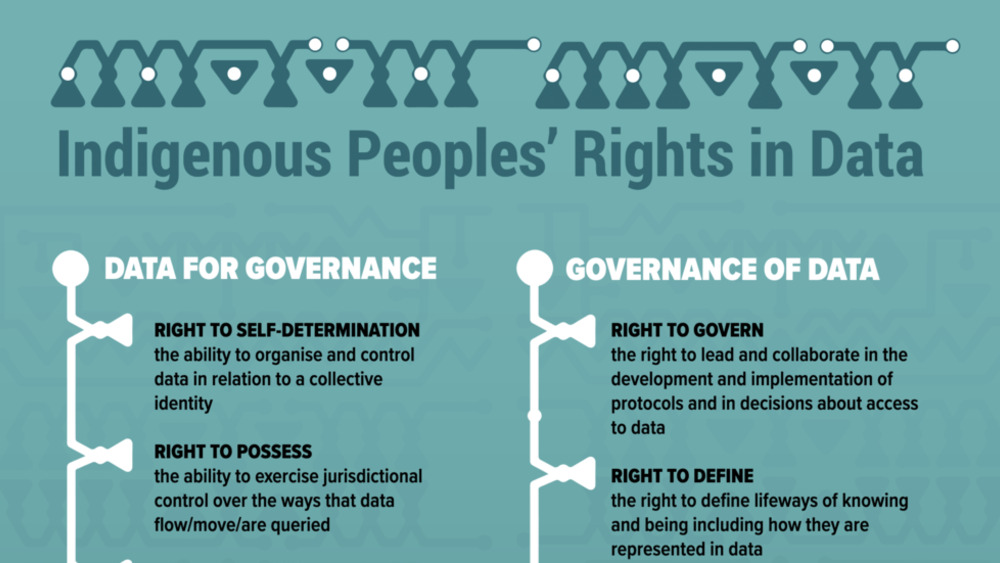
Indigenous Peoples’ Rights in Data
This is the one sheeter version of the publication "Indigenous Peoples' Rights in Data: a contribution toward Indigenous Research Sovereignty" Indigenous Peoples' right to sovereignty forms the foundation for advocacy and actions toward greater Indigenous self-determination and control across a…
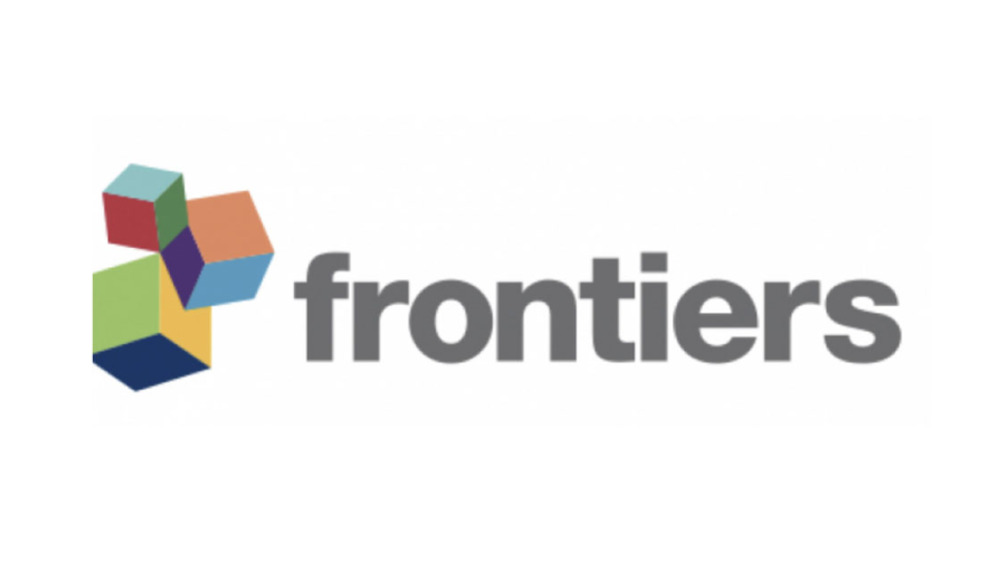
Indigenous Peoples' Rights in Data: a contribution toward Indigenous Research Sovereignty
Indigenous Peoples' right to sovereignty forms the foundation for advocacy and actions toward greater Indigenous self-determination and control across a range of domains that impact Indigenous Peoples' communities and cultures. Declarations for sovereignty are rising throughout Indigenous…
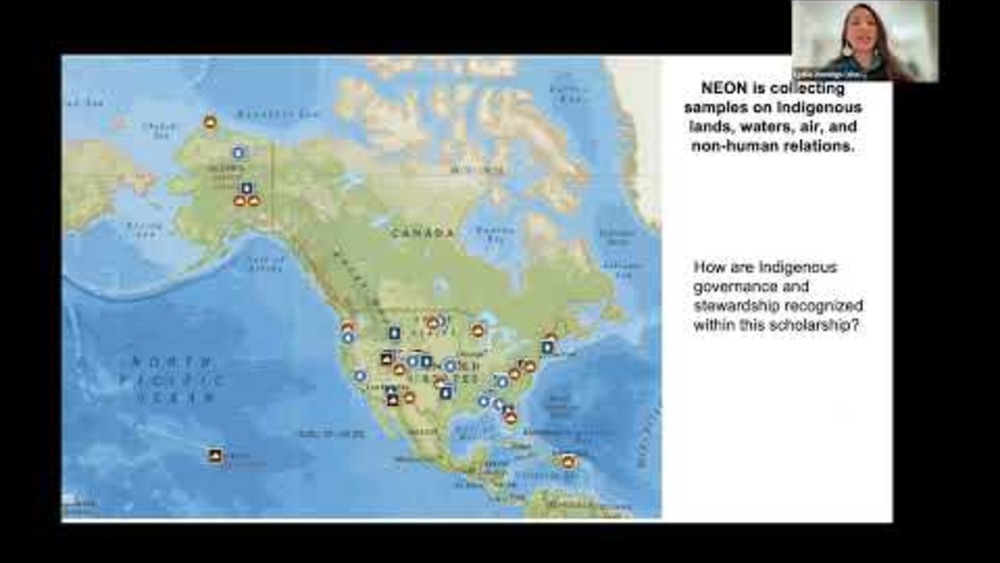
Science Seminar: Implementing the CARE Principles in Open Data Repositories
Image The people and purpose-oriented CARE Principles (Collective Benefit, Authority to Control, Responsibility, and Ethics) reflect the crucial role of data in advancing innovation, governance, and self-determination among…
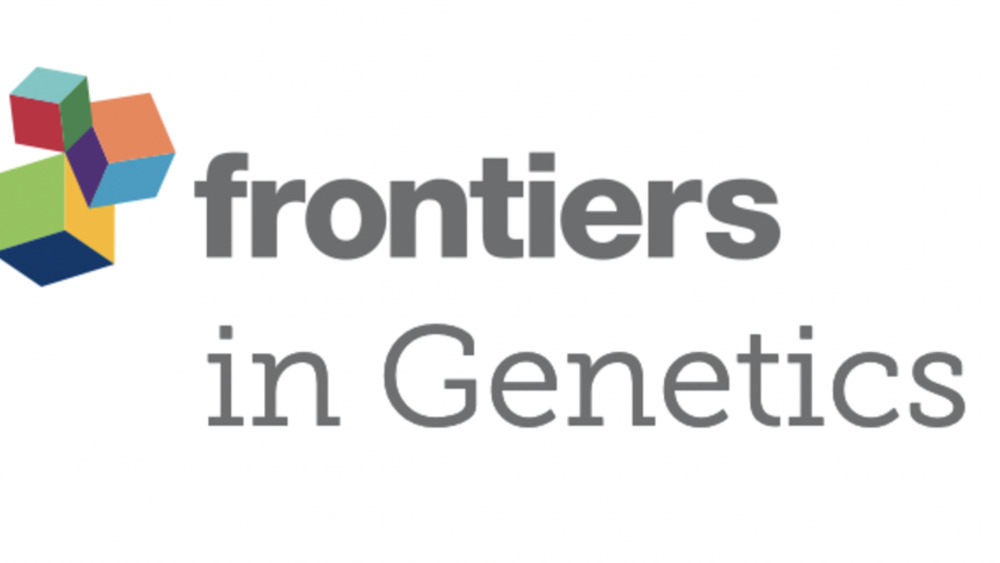
Extending the CARE Principles from tribal research policies to benefit sharing in genomic research
Indigenous Peoples have historically been targets of extractive research that has led to little to no benefit. In genomics, such research not only exposes communities to harms and risks of misuse, but also deprives such communities of potential benefits. Tribes in the US have been exercising their…

Indigenous Data Sovereignty: How Researchers can Empower Data Governance with Lydia Jennings
Indigenous land management practices result in higher species richness, less deforestation, and land degradation than non-Indigenous strategies. Many environmental researchers, data repositories, and data service operations recognize the importance of collaborating with Indigenous nations,…
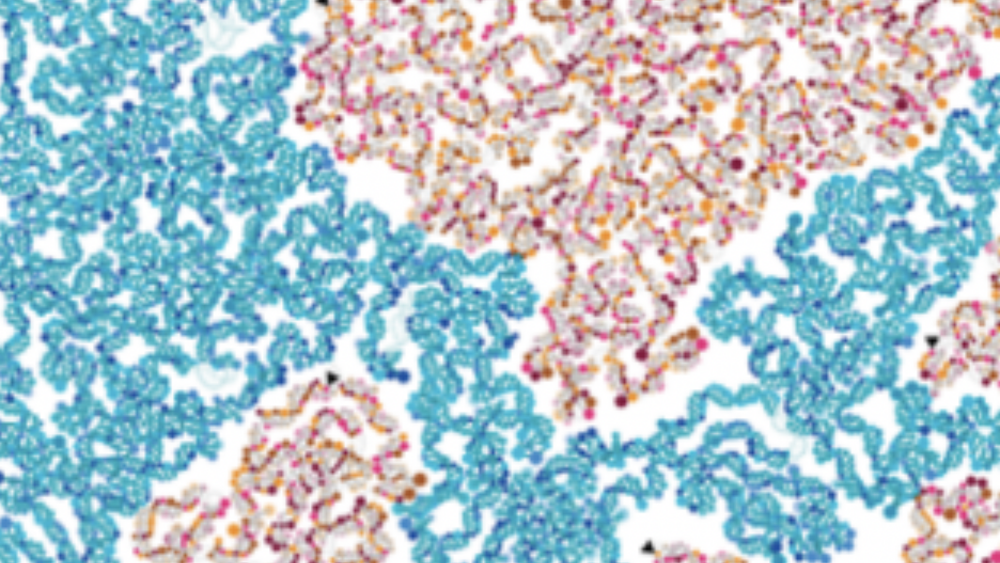
Balancing openness with Indigenous data sovereignty: An opportunity to leave no one behind in the journey to sequence all of life
The field of genomics has benefited greatly from its “openness” approach to data sharing. However, with the increasing volume of sequence information being created and stored and the growing number of international genomics efforts, the equity of openness is under question. The United Nations…

Improving Ethical Practice in Transdisciplinary Research Projects Webinar
Transdisciplinary research, or research conducted by people from different disciplines and organizations working together to solve a common problem, holds promise for communities and scientists seeking to address complex socio-ecological problems like climate change. However, this collaborative…

Expanded Ethical Principles for Research Partnership and Transdisciplinary Natural Resource Management Science
Natural resource researchers have long recognized the value of working closely with the managers and communities who depend on, steward, and impact ecosystems. These partnerships take various forms, including co-production and transdisciplinary research approaches, which integrate multiple…
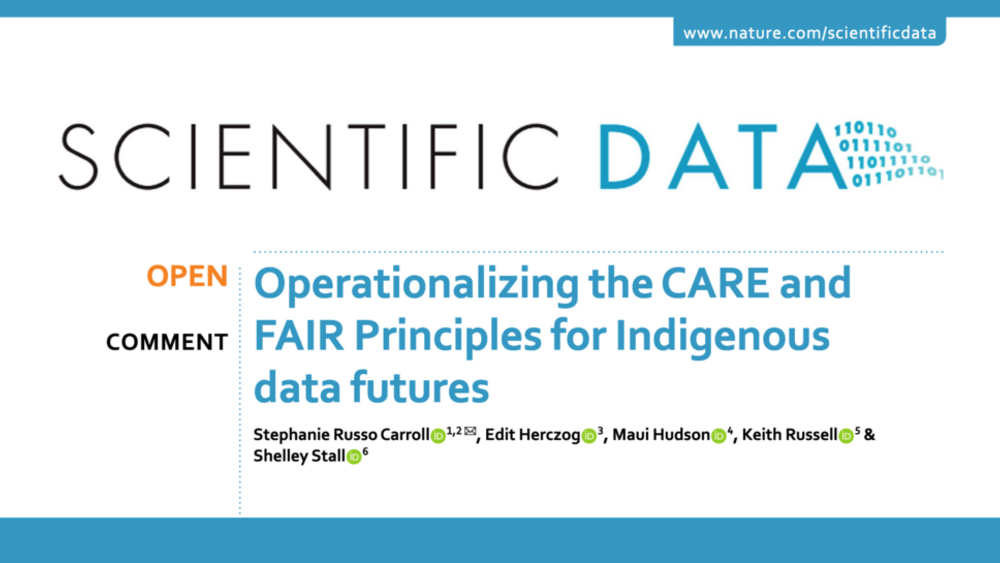
Operationalizing the CARE and FAIR Principles for Indigenous data futures
As big data, open data, and open science advance to increase access to complex and large datasets for innovation, discovery, and decision-making, Indigenous Peoples’ rights to control and access their data within these data environments remain limited. Operationalizing the FAIR Principles for…
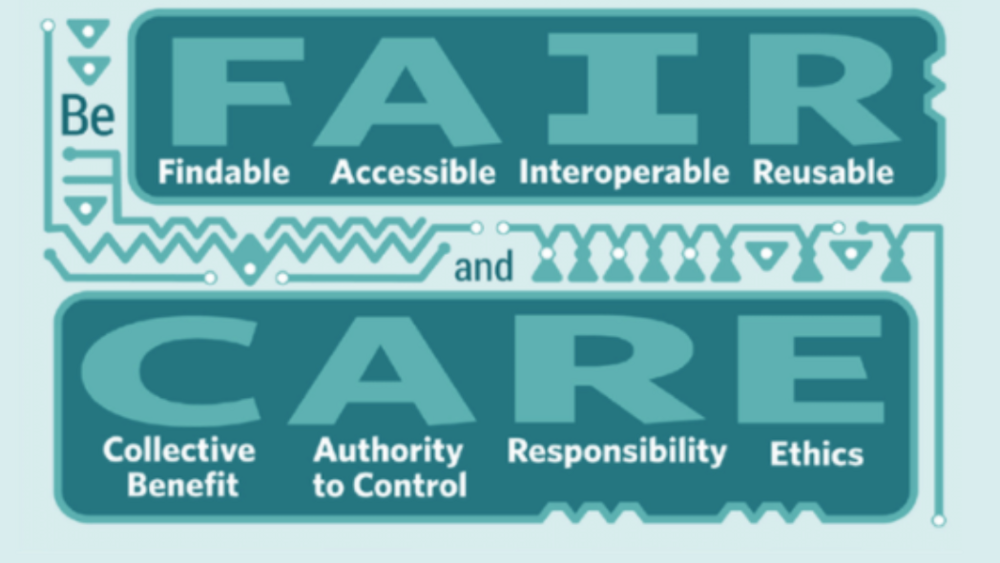
Working with the CARE Principles: operationalising Indigenous data governance
Shifting the focus of data governance from consultation to values-based relationships to promote equitable Indigenous participation in data processes. Indigenous data sovereignty is becoming an increasingly relevant topic, as limited opportunities for benefit sharing have focused attention on the…
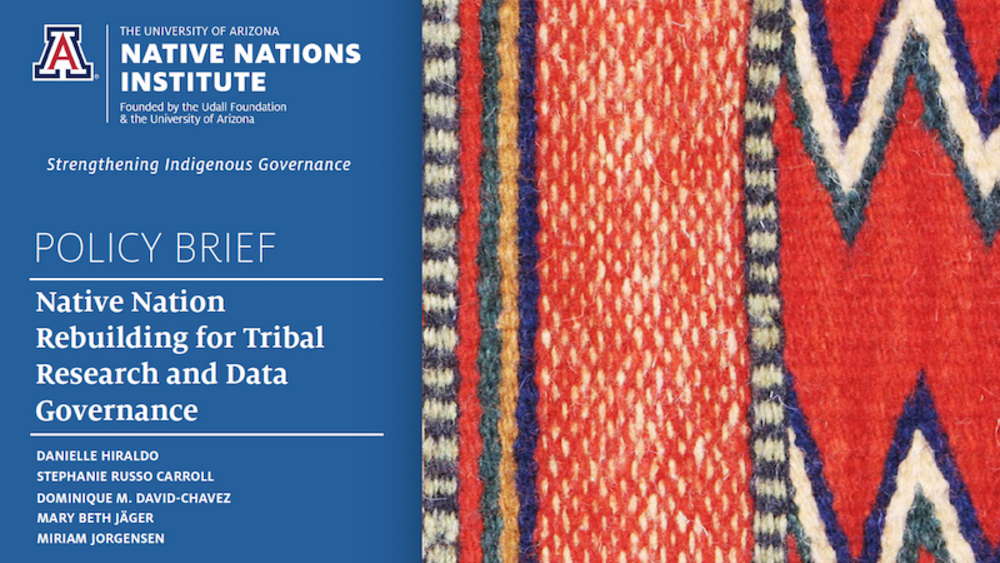
Policy Brief: Native Nation Rebuilding for Tribal Research and Data Governance
Indigenous Peoples conducted research long before their interactions with European settlers. Whether through observation or practice, research in a non-western context was woven into Indigenous ways of knowing and being. It continues to inform Indigenous Knowledges of landscapes and natural…
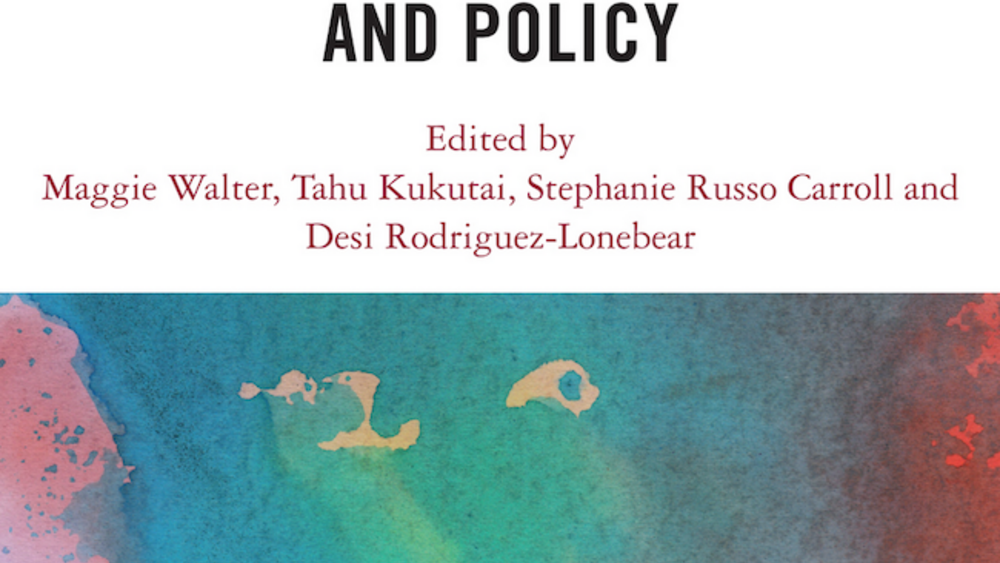
Indigenous Data Sovereignty and Policy
This book examines how Indigenous Peoples around the world are demanding greater data sovereignty, and challenging the ways in which governments have historically used Indigenous data to develop policies and programs. In the digital age, governments are increasingly dependent on data and data…

Indigenous Data Sovereignty: Activating Policy and Practice
The Global Indigenous Data Alliance (GIDA), the US Indigenous Data Sovereignty Network (USIDSN), and ORCID invite you to join us for a webinar about Global Indigenous Data Alliance Policy Interaction. We have asked three panelists to speak about their experiences with Indigenous Data Sovereignty;…
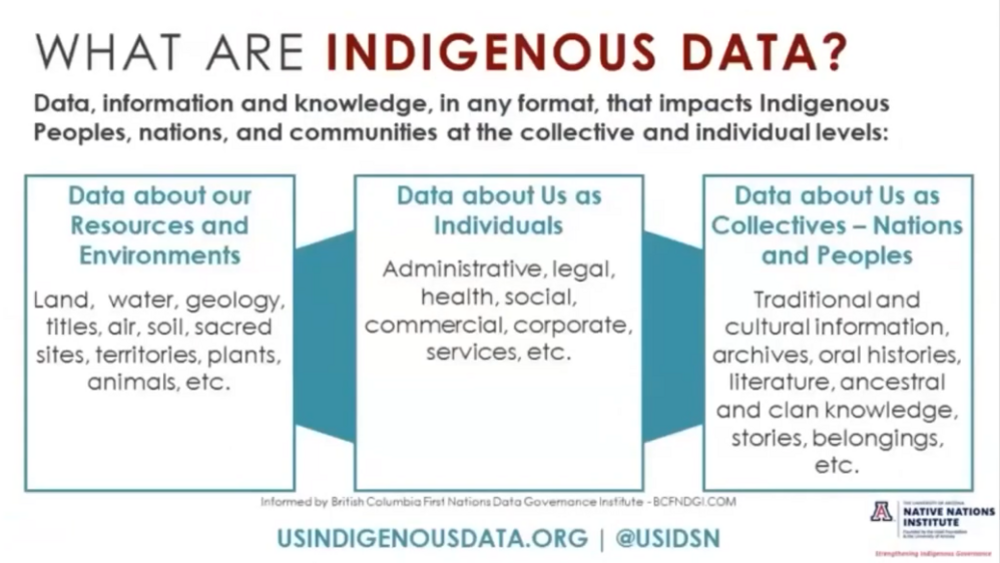
Operationalizing the CARE Principles for Indigenous Data Governance Webinar
Presented by: Stephanie R. Carroll, Assistant Professor and Associate Director of the Native Nations Institute, University of Arizona Jane Anderson, Associate Professor, Department of Anthropology and Museum Studies, New York University Extractive and unethical research practices led to the…
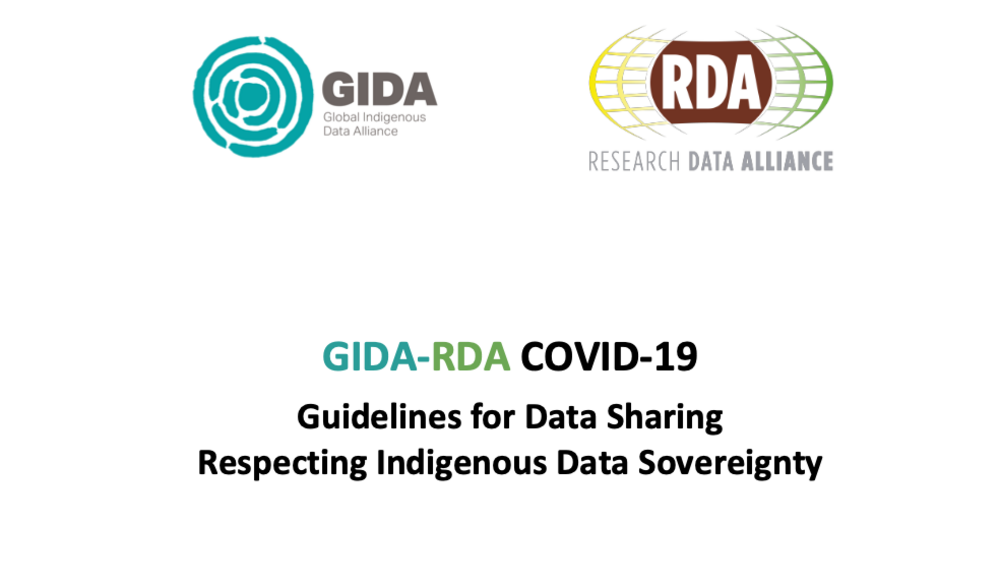
GIDA-RDA COVID-19 Guidelines for Data Sharing Respecting Indigenous Data Sovereignty
Indigenous Peoples around the globe have diverse narratives of resilience and adaptability; however, they are also acutely impacted by the negative social, economic, environmental and health outcomes of COVID-19 (UN Special Rapporteur on the rights of Indigenous Peoples, 2020). As such, it is vital…
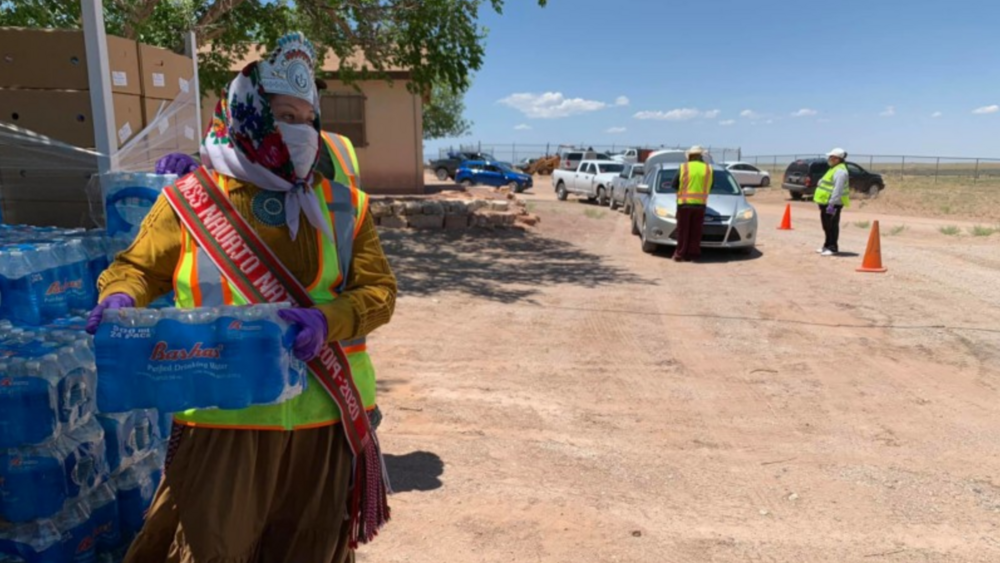
Indigenous Data in the Covid-19 Pandemic: Straddling Erasure, Terrorism, and Sovereignty
On April 10, 2020, Covid-19 case rates on tribal lands were more than four times the rate in the United States.1 Indigenous Peoples across the country continue to be disproportionately impacted by the coronavirus. As of May 18, 2020, the Navajo Nation has the highest Covid-19 case rates surpassing…

Indigenous Data Sovereignty: The CARE Principles and the Biocultural Labels Initiative
The NYU Alliance for Public Interest Technology Alliance is a dynamic and multidisciplinary group of NYU faculty who are experts on the responsible and ethical creation, use and governance of technology in society. The Alliance is a provostial initiative that connects numerous NYU hubs and…
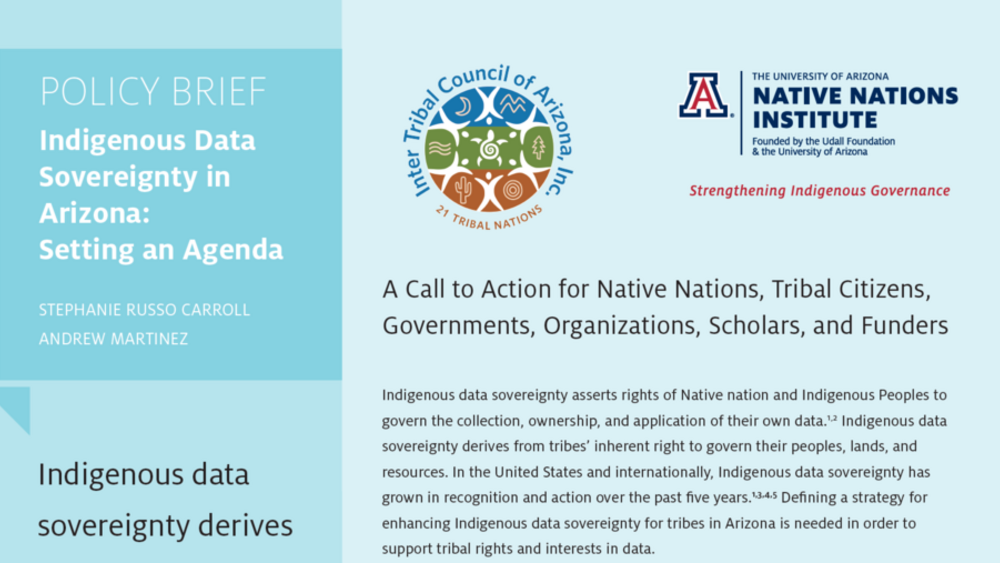
Policy Brief: Indigenous Data Sovereignty in Arizona: Setting an Agenda
Indigenous data sovereignty asserts the rights of Native nations and Indigenous Peoples to govern the collection, ownership, and application of their own data. Indigenous data sovereignty derives from tribes’ inherent right to govern their peoples, lands, and resources. In the United States and…
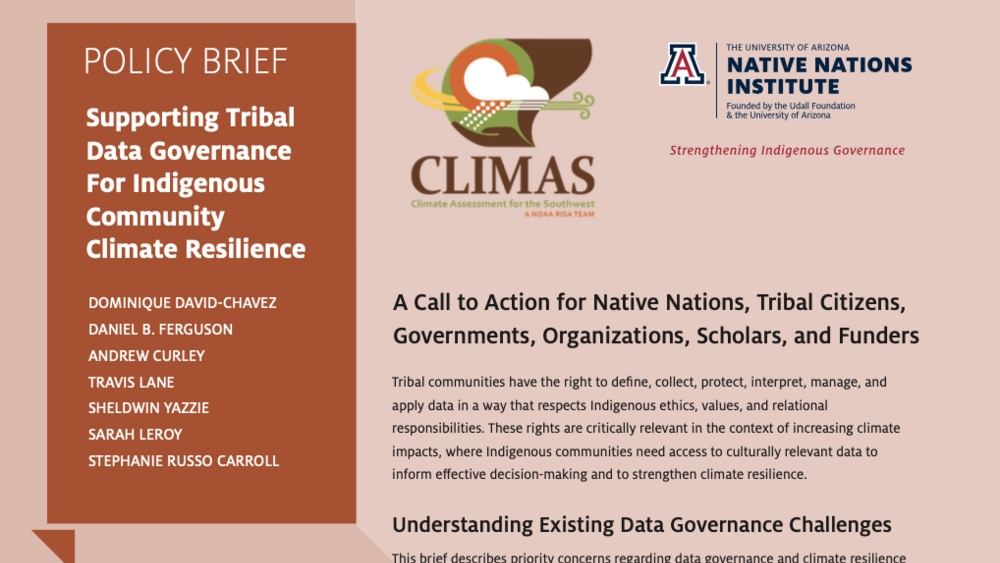
Policy Brief: Supporting Tribal Data Governance for Indigenous Community Climate Resilience
Tribal communities have the right to de fine, collect, protect, interpret, manage, and apply data in a way that respects Indigenous ethics, values, and relational responsibilities. These rights are critically relevant in the context of increasing climate impacts, where Indigenous communities need…
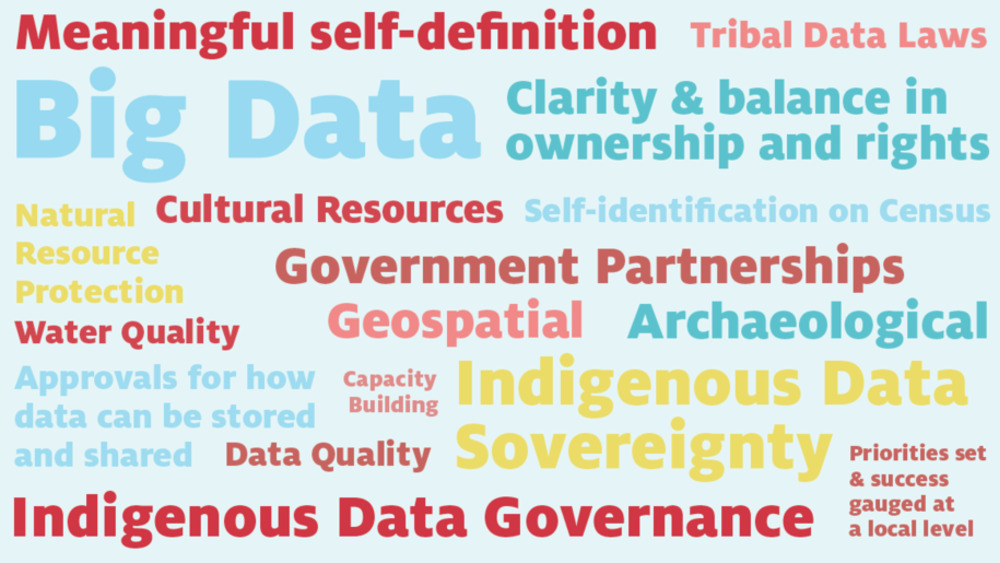
Principles of Indigenous Data Governance
Indigenous data, whether collected by national governments and institutions or gathered by Indigenous Peoples themselves, are integral for: decision-making; the exercise of collective rights to self-determination; the affirmation and application of Indigenous epistemologies; and fulfilling…
Pagination
- First page
- …
- 1
- 2
- 3
- …
- Last page
